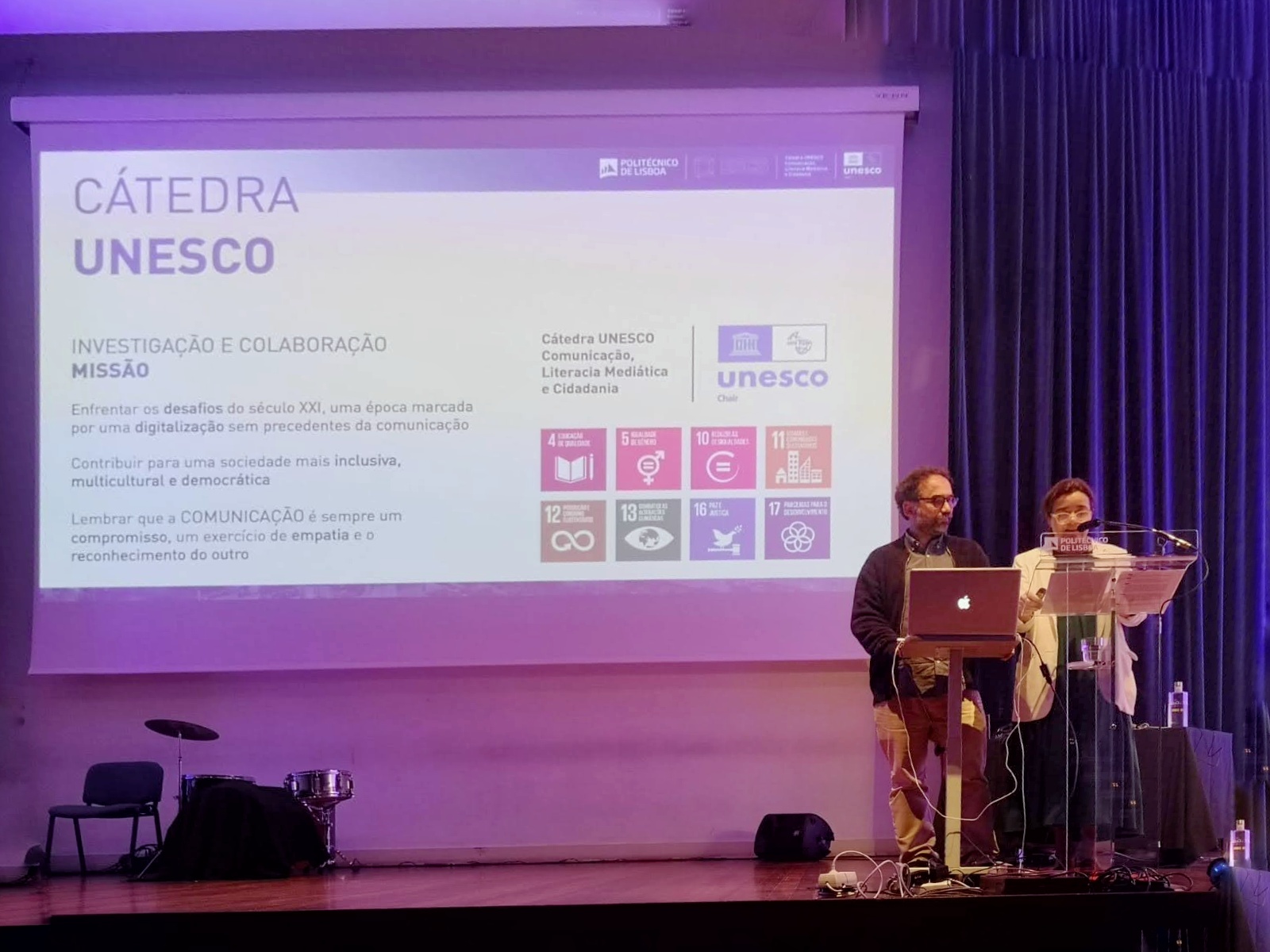ESCS launches UNESCO Chair with emphasis on critical thinking and community involvement
At the ceremony, Nova University researcher Maria Augusta Babo suggested that technologies be seen as unavoidable mediators of our perception of the world and not just as threats to citizens.
The need to learn how to filter information and the impact of communication on society were the theme for the launch session, on October 30, 2024, of the first UNESCO Chair in Communication, Media Information Literacy and Citizenship, granted to School of Communication and Media Studies (ESCS), Polytechnic University of Lisbon (IPL).
Maria Augusta Babo, retired professor from the Department of Communication Sciences at the Faculty of Social and Human Sciences (FCSH) and researcher at Universidade Nova de Lisboa, laid the foundations for reflection on the three themes of this Chair.
The ICNOVA researcher began by mentioning how important media literacy is as a filter for the information that reaches the public. “Literacy, in the strong sense of the term, designates precisely this interpretative nature of meaning-making, which can be understood as a cognitive act of translation”, which allows us, for example, to separate what is said on social media from what is said in the press.
Citing recent studies by the European Union, which report the difficulty young people have in understanding content that is published, Babo warned that “schools should not focus exclusively on preparing students for technology, but above all on training critical thinking, detecting fake news and online identities”. “Instead of looking at technologies as constant dangers, perhaps we should see them as unavoidable mediators of our perception of the world”, the researcher added.
Maria Augusta Babo also highlighted the fundamental role of knowledge technologies in citizenship training, stating that “the challenge academia faces today is to involve citizens as a way of extending knowledge and as a form of reciprocal collaboration”.
Paolo Celot, founder and secretary-general of the European Association for Viewers Interests (EAVI), who joined the session via videocall, elaborated on the requirements to be part of a full and active citizenship and on the impact of large companies in control of information.
“The world’s most important companies represent the vast majority of Internet traffic, which means we are looking for more information. More than 60% of online traffic is in the hands of these large companies,” Celot warned.
During the session, the group Música na Comunidade, a partnership between Lisbon Music School (ESML) and Lisbon Education School (ESELx), emphasized those issues in a cultural moment, in which the intrinsic value of freedom was affirmed.
The executive secretary of UNESCO National Commission, Rita Brasil de Brito, brought to mind the aims of a UNESCO Chair and expressed great expectations for the work of ESCS, particularly in combating disinformation and hate speech.
Closing the event, Fernanda Bonacho and João Abreu, respectively chair and co-chair of this UNESCO mission, drew attention to everyone’s responsibility in sharing information, but also to security issues when browsing digital platforms.
Fernanda Bonacho said that “the attention economy is disputed daily and all over the world by hate, coming from many who already have power and a voice in society, but also from all those who know it is an easy and effective way to gain visibility, not only on digital platforms, but also in traditional media and in all public spaces.”
Therefore, the work to be developed by the Chair will include initiatives that contribute to “more informed, inclusive and democratic societies” and that help to foster critical and responsible thinking that prevents extremism and social polarization, cited as one of the ten greatest world risks in the next two years.
The UNESCO Chair in Communication, Media Literacy and Citizenship is the first UNESCO Chair awarded in Portugal in the area of communication. In total, there are 20 UNESCO Chairs in our country.

